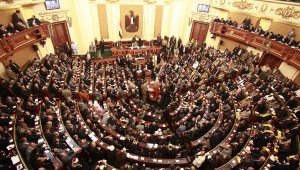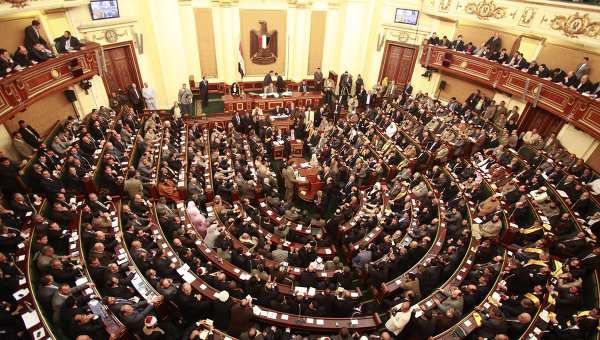
(AFP File Photo)
The cabinet approved Saturday four laws required for parliamentary elections to be held, according to state-owned newspaper Al-Ahram. The laws are awaiting ratification by President Abdel Fattah Al-Sisi in the next few days, based on statements made by the Minister of Transitional Justice and Parliament Affairs Ibrahim El-Heneidi.
The laws amended include those organising the exercise of political rights, the operation of the House of Representatives and the electoral districts.
The coming parliament is set to be composed of 596 deputies, with 448 as independents, 12 as party-based members and 28 as presidential nominees.
Amendments include allowing Egyptians with dual nationality to run for parliamentary elections, and cancelling the time limit for the Supreme Constitutional Court (SCC) to issue rulings on appeals. In addition, an amendment to the House of Representatives affairs law set the ceiling of spending by a party list on election campaigns at EGP 7.5m.
Some political parties have proposed an article to protect the parliament from immediate dissolution in case of unconstitutionality of laws. However, the proposal was rejected by the cabinet.
El-Heneidi told state media on 28 June that elections are expected to be held in September 2015.
Parliamentary elections were previously scheduled to take place in March, but were suspended by the Supreme Constitutional Court (SCC) due to the unconstitutionality of parliamentary laws. The unconstitutional laws were specifically relating to those organising the division of electoral districts.
Parliamentary elections would mark the third and final step of the roadmap, which was outlined on 3 July, following the ouster of former president Mohamed Morsi. The roadmap was composed of three stages to be implemented: drafting a new constitution; parliamentary elections; and presidential elections.
However, the roadmap was later adjusted by former interim president Adly Mansour so that presidential elections are held before parliamentary elections.

